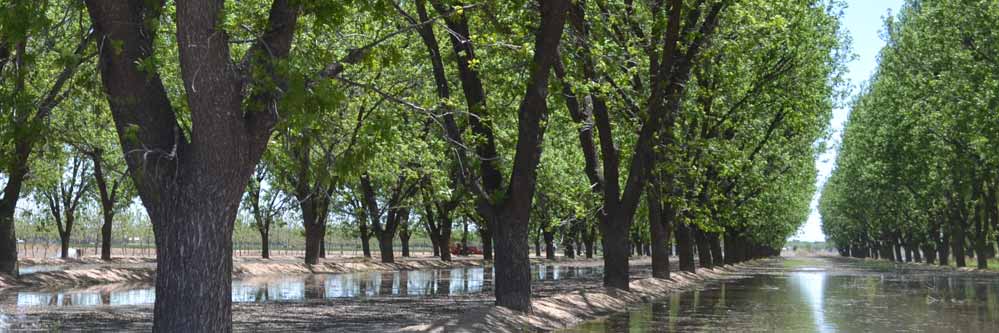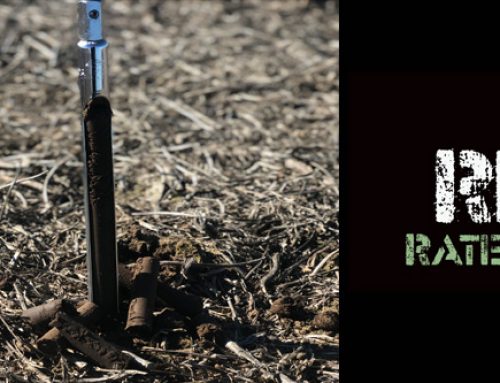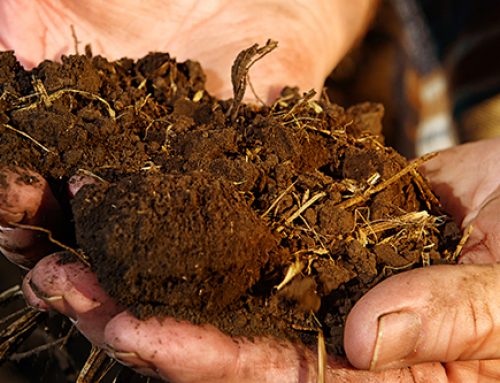Although Georgia has been one of the leading states in pecan production, several states in the west have become top pecan-producers, including Texas, New Mexico, Arizona and California. Over the past several decades changing economic factors have led to increased pecan production in the high desert valleys of southern Arizona and New Mexico. Growers find that the arid environment and long growing season are well suited for this crop. There can also be unique challenges to producing pecans in the southwest.
One chronic issue that growers face is zinc deficiency and to a lesser extent nickel deficiency. Zinc deficiency can be identified through the characteristic lion’s tail effect on the tips of developing branches while a tree lacking in nickel will develop leaves where the center leaflet will be mouse-eared. There are many other symptoms that can be observed in deficient trees but the overall effect is stunted growth and lower production.
Many micronutrients are more readily available for plant uptake in a soil solution with a low-moderate pH similar to that of the southeastern U.S. where pecans are native. Having never required it, the mechanism whereby plants can extract unavailable nutrients from high pH soils is poorly developed in pecan. Soils in well-established pecan orchards often test high in zinc from the repeated foliar sprays that end up on the ground, but the nutrient is still unavailable to the trees. Thus growers must continue to supplement these nutrients through foliar sprays. Large air blast sprayers are commonly used as well as aircraft. The first spray should be timed to coincide with bud break and continue until leaf expansion is complete. In established orchards three to five applications per season is sufficient. In younger orchards that are not yet producing nuts the trees commonly continue to grow throughout the summer and an additional one to two midseason applications may be made. Zinc sulfate and chelated zinc/nickel are commonly used in the sprays along with some nitrogen to aid in plant uptake.
Pecan production can be a lucrative option for growers in areas conducive to their cultivation. After an initial establishment period of eight to ten years, pecans will produce for many decades, so proper management of micronutrients is essential throughout the life of the orchard. Pecan yields vary significantly based on a number of agronomic factors and a natural alternate bearing cycle where a high production year is followed by a low production year. Yields can be as low as a few hundred pounds per acre to well over a ton.
As with any crop introduced outside of its native area, there are new sets of challenges presented. This is why having a Crop Quest Consultant who is part of a larger network of experienced agronomists is vital to your operation.
Written by: Logan McGarrah, Lake Arthur, NM




